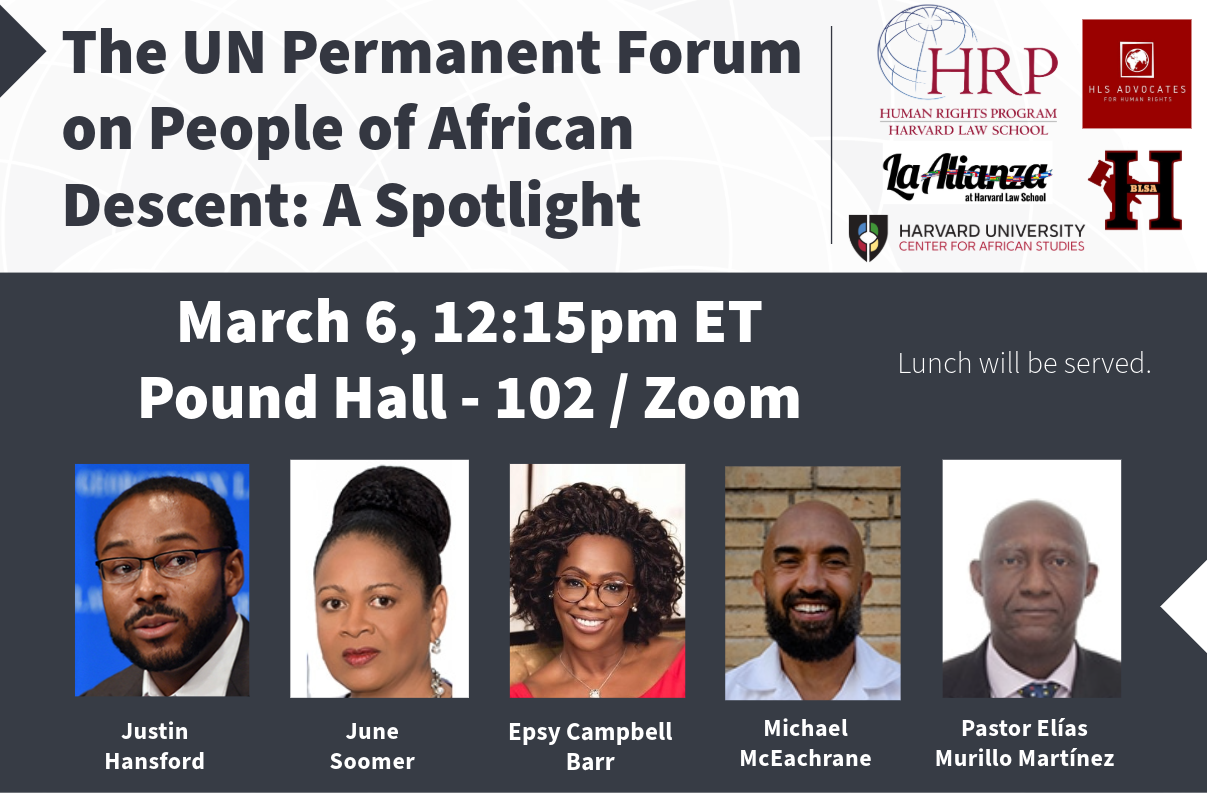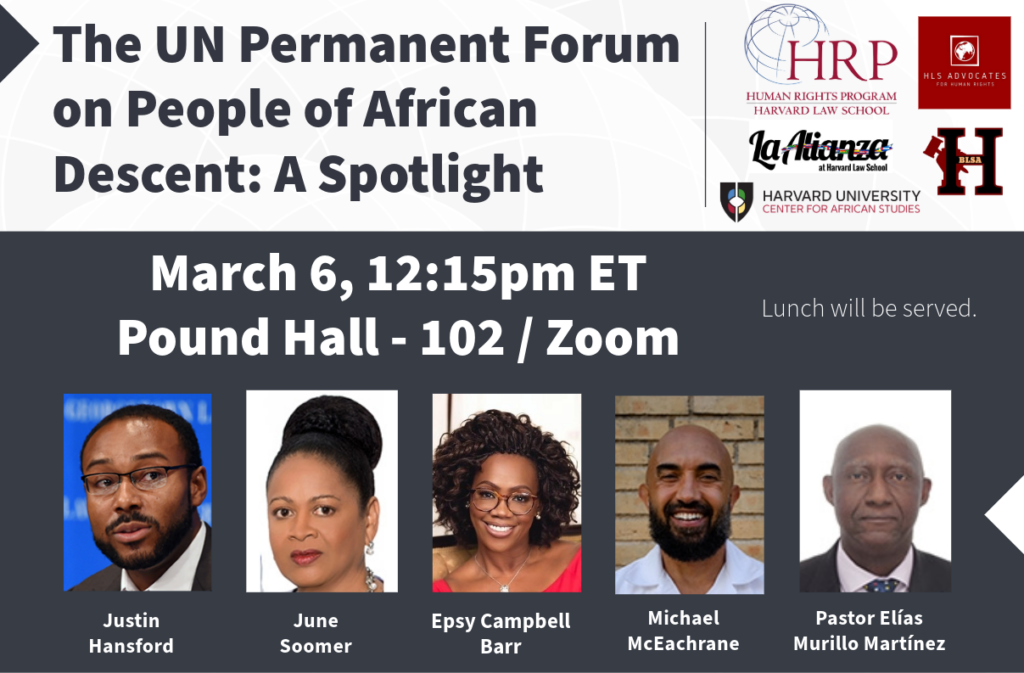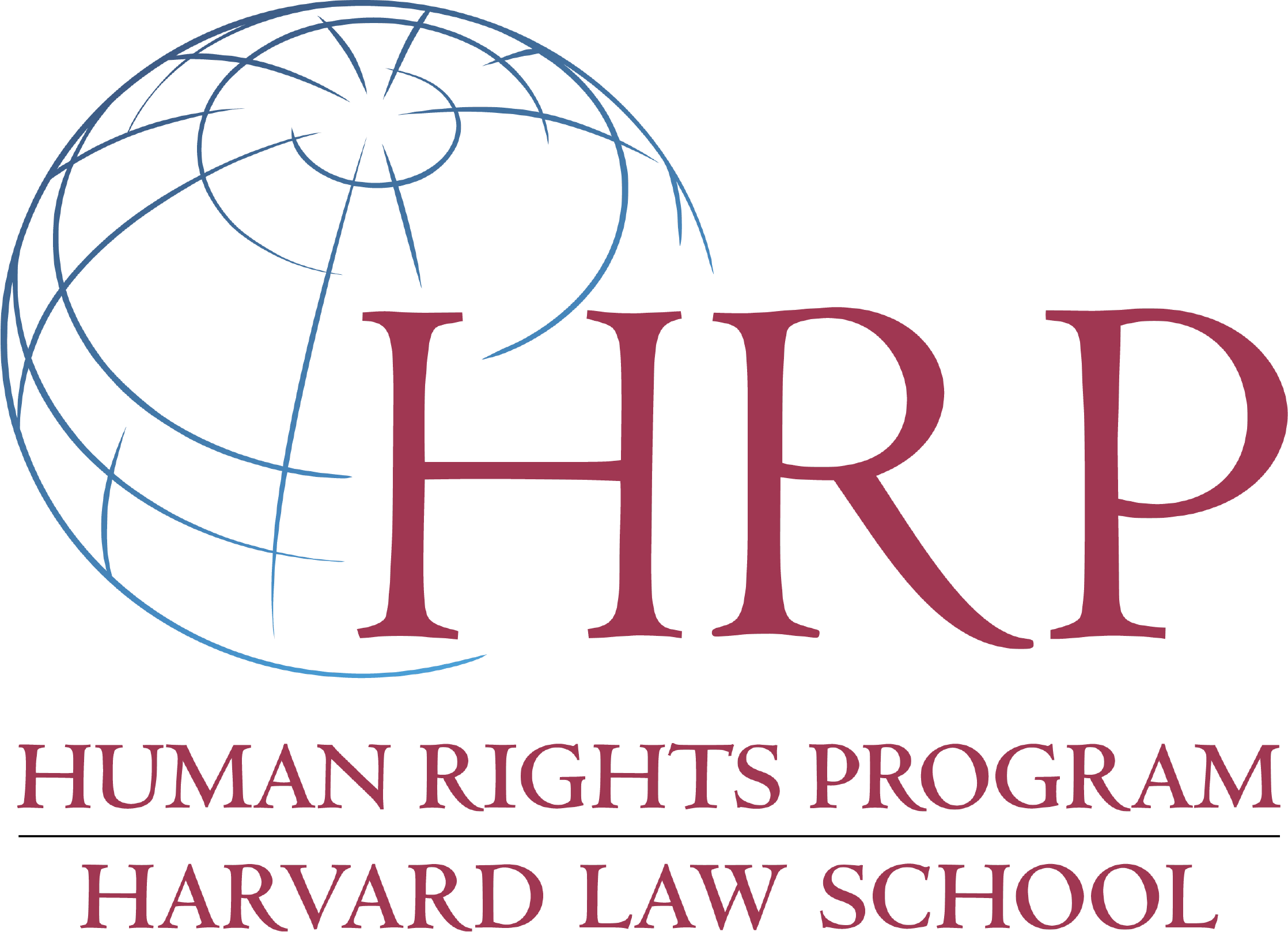
This is a hybrid event. You can register for Zoom online.

The Human Rights Program at Harvard Law School cordially invites you to a stimulating open lunch discussion on the UN Permanent Forum on People of African Descent. Engage with esteemed panelists as they explore historical legacies, contemporary challenges, and innovative solutions surrounding the rights of individuals of African descent worldwide. Join fellow scholars, activists, and students in an inclusive environment promoting open-mindedness and intellectual exchange. Don’t miss this unique opportunity to connect, learn, and contribute to the global dialogue on equality and solidarity.
Panelists
Epsy Campbell Barr, former Vice President and Minister of Foreign Affairs of Costa Rica, is a prominent Afro-feminist, human rights, and environmental activist. Her extensive research covers democracy, inclusion, women’s rights, environmental sustainability, and issues pertaining to people of African descent, including racism and racial discrimination. An esteemed speaker, Ms. Campbell Barr has delivered compelling addresses in various countries, spanning states, universities, corporations, seminars, and conferences. Her dedication to fostering sustainable and inclusive societies has garnered international recognition through multiple prestigious awards. With a PhD in Humanities from the University of Brenau, Georgia, and a background in economics, she holds Master’s Degrees in International Cooperation for Development and Advanced Techniques in Political Participation.
Justin Hansford, a distinguished professor of Law, is renowned as the executive director and founder of the Thurgood Marshall Civil Rights Center. Holding a B.A. from Howard University and a J.D. from Georgetown University Law Center, he played a pivotal role in founding the Georgetown Journal of Law and Modern Critical Race Perspectives. A leading scholar and activist, Hansford’s expertise spans critical race theory, human rights, and the intersection of law with social movements. He is a co-author of the forthcoming Seventh Edition of “Race, Racism, and American Law,” a seminal legal textbook designed for race-related law courses. Following the tragic killing of Michael Brown in Ferguson, Missouri, Hansford mobilized efforts to empower the community through community-based legal advocacy. He has provided invaluable policy advice for post-Ferguson reforms at local, state, and federal levels, offering testimony before influential bodies such as the Ferguson Commission, the Missouri Advisory Committee to the United States Civil Rights Commission, the President’s Task Force on 21st Century Policing, and the Inter-American Commission on Human Rights.
Pastor Elías Murillo Martínez is a Colombian lawyer, independent consultant, and current member of the United Nations Permanent Forum of People of African Descent. He was previously a member (2008-2020) and then vice president (2018-2020) of the United Nations’ Committee for the Elimination of Racial Discrimination (CERD). Martínez is the author and promoter of several international initiatives for people of African descent. These include CERD’s General Recommendations 34 and 36 on Racism and Racial Discrimination against people of African descent and on racial profiling, as well as the International Decade for People of African Descent Resolution Project which resulted in the United Nations Proclamation that 2011 was the “International Year for People of African Descent.” Martínez also contributed to the International Declaration on the Rights of People of African Descent, currently in progress.
Michael McEachrane is an international activist for the human rights of people of African descent as well as a researcher in Black (Nordic and European) Studies, Human Rights Studies and Postcolonialism. As an activist he has, among other things, co-founded several civil society organizations, been deeply involved in the UN International Decade for People of African Descent, the establishment of the Permanent Forum of People of African Descent, and EU recognition of the fundamental rights of people of African descent. As a researcher he is, among other things, the editor of Afro-Nordic Landscapes: Equality and Race in Northern Europe, and the author of numerous articles and book chapters on such topics as Pan-Africanism and African diaspora in Europe, anti-discrimination law and systemic racism, and Black Swedish Studies. Currently, he is working on two books, Sweden and the Others: Decolonial Perspectives, and, Decolonial Justice: Black Europeans and Human Rights. Dr. McEachrane is currently a Visiting Researcher at the Raoul Wallenberg Institute of Human Rights and Humanitarian Law in Sweden.
Dr. June Soomer’s career has interwoven the diplomatic, financial, and educational sectors, and she currently serves as a member of the United Nations Permanent Forum of People of African Descent. Dr. Soomer was the first woman to receive a PhD in History from the University of the West Indies Cave Hill Campus and the first woman to serve as the Saint Lucian Ambassador to CARICOM and the OECS. She also served as the Secretary General of the Association of Caribbean States (2016-2020) and was appointed as Chair of the Open Campus Council of the University of the West Indies in 2018. Dr. Soomer has received numerous awards, including most recently The Order of José de Marcoleta in the Degree of Grand Cross from the Republic of Nicaragua in the area of diplomacy in August 2021 and The Saint Lucia Cross for distinguished service in the fields of Education, Diplomacy, Regionalism and Development Specialty in February 2021. Dr. Soomer writes on regional integration, reparations, and women during enslavement and is a member of the Saint Lucia Reparations Committee.
This event is cosponsored by Harvard Black Law Students Association, La Alianza, Harvard Center for African Studies, and HLS Advocates.
